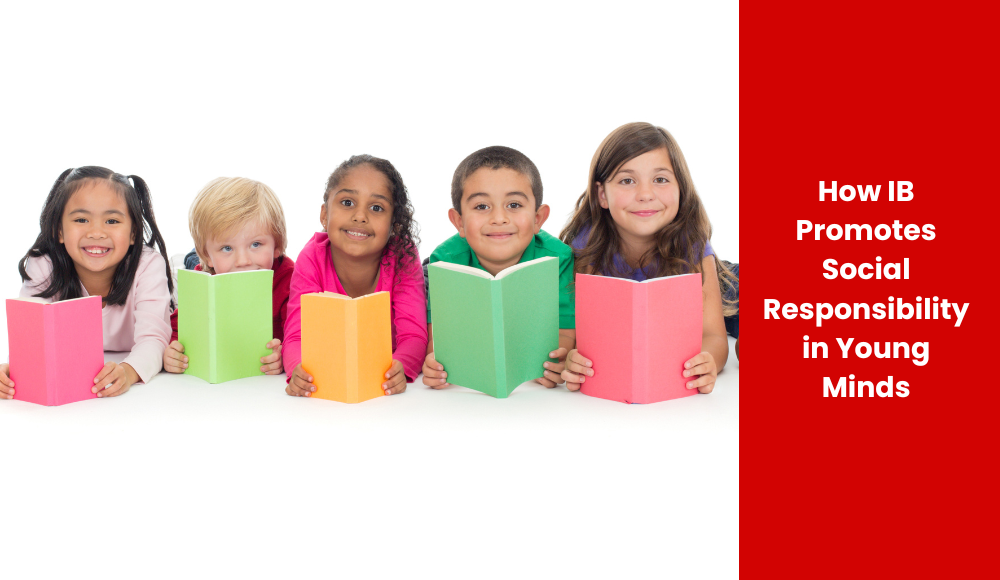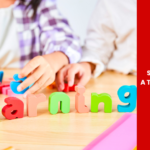How IB Promotes Social Responsibility in Young Minds
The International Baccalaureate (IB) curriculum is renowned for its commitment to developing well-rounded individuals who are not only academically proficient but also socially responsible and globally aware. The emphasis on fostering social responsibility is a key component of the IB philosophy, which encourages students to become active contributors to society. At K.R. Mangalam Global School, this commitment to social responsibility is embedded across all stages of the IB program, from the Primary Years Program (PYP) to the Diploma Program (DP), ensuring that students develop a deep sense of empathy, ethics, and global citizenship. Through a variety of innovative initiatives, experiential learning, and community engagement opportunities, the school empowers students to think critically about their roles in the world and take meaningful action to make a positive impact.
Understanding Social Responsibility in the IB Context
Social responsibility in the IB context refers to the ability of students to recognize their duties and obligations towards others, both locally and globally. It involves fostering empathy, ethical decision-making, and an understanding of how individual actions can influence the broader community. In the IB program, social responsibility is not just a theoretical concept—it is something students actively engage with and practice in their daily lives. The aim is to create responsible, compassionate, and engaged citizens who are committed to addressing global challenges and contributing to positive social change.
The Role of the IB Curriculum in Shaping Social Responsibility
The IB curriculum is designed to encourage students to explore complex global issues and understand their interconnectedness. Through subjects such as Global Politics, Environmental Systems and Societies, and Theory of Knowledge (TOK), students are exposed to critical social, political, and environmental issues. This exposure helps them understand the broader context of social responsibility and the role they can play in addressing challenges such as climate change, inequality, and human rights. The emphasis on inquiry-based learning also encourages students to ask questions, explore different perspectives, and engage in discussions that challenge their assumptions, fostering a deeper understanding of their social responsibilities.
The Creativity, Activity, Service (CAS) Program: A Cornerstone of Social Responsibility
One of the most significant aspects of the IB program that promotes social responsibility is the Creativity, Activity, Service (CAS) requirement. CAS encourages students to engage in a variety of extracurricular activities that contribute to their personal development and benefit the community. Through service projects, students have the opportunity to work directly with marginalized groups, environmental organizations, and community initiatives. Whether it’s organizing a fundraiser for a local charity, volunteering at a senior citizens’ home, or participating in environmental clean-up drives, these experiences help students develop a sense of empathy and a commitment to social good. The CAS program not only allows students to practice social responsibility but also helps them reflect on the impact of their actions, making it a deeply personal and transformative learning experience.
Promoting Ethical Leadership and Advocacy
At our school, the students are encouraged to take on leadership roles that promote ethical practices and social change. Through student-led initiatives, such as advocacy campaigns on issues like gender equality, mental health awareness, and sustainability, students learn to use their voices to advocate for positive change. These initiatives allow students to explore their leadership potential, take ownership of projects, and collaborate with others to achieve common goals. The emphasis on ethical leadership teaches students how to navigate complex societal issues while maintaining integrity and upholding the values of fairness, justice, and respect for others.
Encouraging Empathy through Service Learning Projects
Service learning is a key component of school’s approach to promoting social responsibility. Through service learning projects, students engage with local and global communities to address real-world issues while applying their academic knowledge. These projects are designed to be hands-on and meaningful, allowing students to directly contribute to the betterment of society. For example, students might work with local NGOs to support education initiatives, collaborate with environmental organizations to promote sustainability, or organize health campaigns to raise awareness about public health issues. By working on these projects, students not only make a tangible impact but also develop a deeper understanding of the challenges faced by different communities.
Global Citizenship: Understanding and Acting on Global Challenges
A core tenet of the IB program is the development of global citizens—individuals who are aware of global issues and are committed to making a positive impact in the world. The school fosters global citizenship by encouraging students to engage with international organizations, participate in Model United Nations (MUN) conferences, and explore global issues such as poverty, conflict, and human rights. Through these experiences, students gain a better understanding of how local actions can have global consequences, and vice versa. By encouraging students to think globally and act locally, the school nurtures a generation of young leaders who are committed to creating a more just and sustainable world.
Environmental Responsibility: Promoting Sustainability
Social responsibility extends beyond social and cultural issues to include environmental responsibility. The school emphasizes the importance of sustainability through various initiatives such as waste reduction programs, tree plantation drives, and awareness campaigns on climate change. Students are encouraged to become stewards of the environment by adopting eco-friendly practices in their daily lives and advocating for policies that support environmental conservation. Whether it’s reducing plastic usage in school, organizing awareness workshops on sustainable living, or engaging in community-wide clean-up efforts, K.R. Mangalam ensures that environmental responsibility is a central aspect of the school’s ethos.
Inculcating Social Justice and Equality
Another key aspect of social responsibility promoted at K.R. Mangalam is the importance of social justice and equality. The school engages students in discussions about inequality, discrimination, and human rights, encouraging them to advocate for fairness and equality in their communities. Students learn about the challenges faced by marginalized groups and are encouraged to take action to address these issues. Whether through fundraising for underprivileged communities, supporting initiatives for girls’ education, or promoting inclusivity and diversity in school events. By actively engaging with these issues, students develop a deep commitment to creating a more inclusive and equitable society.
The Role of Faculty in Shaping Social Responsibility
At our school, faculty members play a crucial role in shaping students’ understanding of social responsibility. Teachers act as mentors and role models, guiding students in their service projects, encouraging them to reflect on their experiences, and helping them connect their actions to broader societal issues. By fostering a culture of empathy, compassion, and ethical decision-making, faculty members ensure that students internalize the values of social responsibility. The personal connections formed between teachers and students provide a strong foundation for developing socially responsible leaders who will continue to contribute positively to society throughout their lives.
Collaboration with External Organizations
The school also collaborates with external organizations, including NGOs, governmental bodies, and international institutions, to provide students with opportunities for hands-on learning and community engagement. These partnerships allow students to work on real-world problems, gain exposure to diverse perspectives, and build networks that support their personal and professional growth. Through these collaborations, students gain insight into the challenges faced by different communities and develop practical solutions to address them. This direct engagement with external organizations reinforces the importance of social responsibility and prepares students to become agents of change in their communities.
The Impact of Social Responsibility on Students
Students develop a deep sense of empathy, compassion, and accountability as they engage in community service, environmental advocacy, and global citizenship projects. These experiences help students understand the interconnectedness of the world and the importance of working together to address common challenges. By actively participating in social responsibility initiatives, students develop key life skills such as leadership, teamwork, communication, and problem-solving. These skills, combined with a strong sense of social responsibility, ensure that students graduate as compassionate, informed, and proactive citizens who are prepared to make a positive impact in the world.
Conclusion:
The IB program serves as a powerful tool for promoting social responsibility in young minds. A combination of academic inquiry, experiential learning, and community engagement, students are encouraged to think critically about their roles in society and take meaningful action to address social, environmental, and global challenges. By fostering empathy, ethical decision-making, and global citizenship, the school ensures that its students are not only well-prepared for academic success but also equipped to lead with integrity and make a positive difference in the world.


